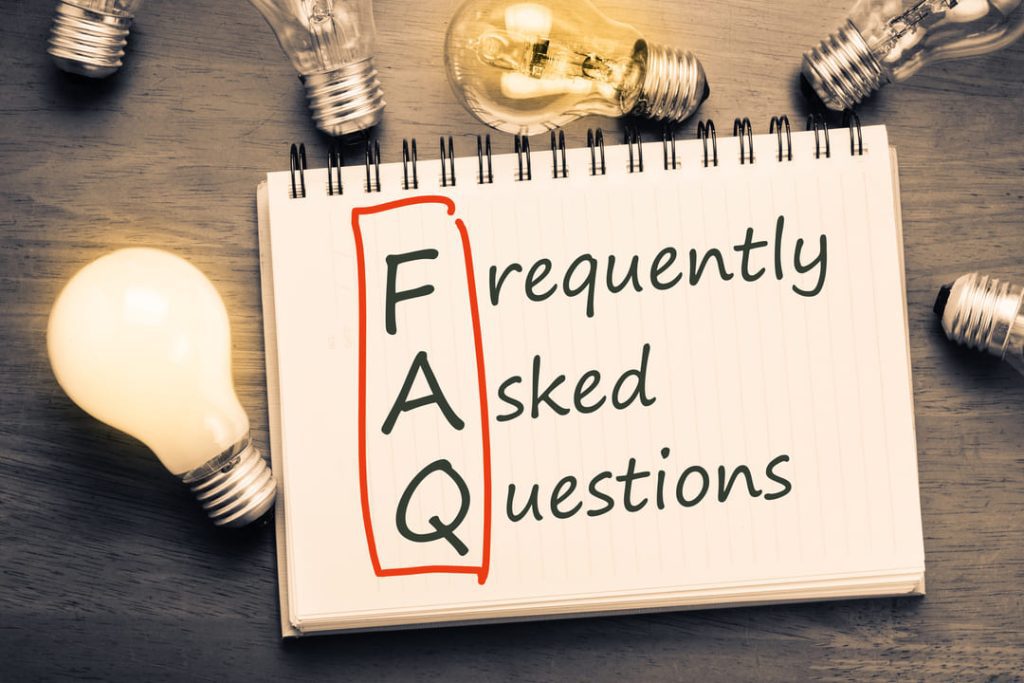Looking for Expert-Level VA Claim Answers?📱Call Us Now! 737-295-2226
If you have a severe mental health condition, such as bipolar disorder, you could be entitled to VA compensation and benefits. If you’ve been diagnosed with bipolar disorder, either before or after your military service, you may be interested in learning about bipolar VA disability and how it’s rated.
In this guide, we’ll deep dive into bipolar disorder VA disability, including how the VA rates bipolar disorder, how to prove service connection, and more.
Table of Contents
Summary of Key Points
- Bipolar disorder is a lifelong mental illness involving intense mood swings and other symptoms.
- To qualify for bipolar VA disability, you must show your condition was caused or worsened by your military service (i.e. service-connection).
- The VA rates bipolar disorder at 0%, 10%, 30%, 50%, 70%, or 100%, depending on the severity of your symptoms and how they impact your life.
- Bipolar VA ratings depend on the severity of symptoms and how the symptoms impact a veteran’s work and social life.
Veterans and Bipolar Disorder
Mental health disorders are among the most common service-connected conditions for veterans. Many veterans face mental health challenges; some are severe enough to adversely impact their well-being and daily lives. It’s far too familiar that these challenges become unrecognized consequences of military service.
What is Bipolar Disorder?
Once commonly known as manic depressive disorder, bipolar disorder is a lifelong mental health condition that involves intense emotional fluctuations and mood swings — from intense emotional highs (mania) to extreme lows (depression) — that often last several days or even weeks.
Symptoms
If you have bipolar disorder, you are likely aware of its common symptoms, but if you don’t have a diagnosis and experience extreme mood swings, here are some common symptoms that may indicate a bipolar disorder diagnosis:
- Extreme mood swings that range from elation to hopelessness and depression
- Manic symptoms (including unusual talkativeness, feeling wired, racing thoughts, feelings of grandiosity, or poor impulsive control/decision-making)
- Periods of mania that may require hospitalization (bipolar I)
- Periods of hypomania (i.e., abnormally elevated changes in your mood or emotions, with an increased energy or activity level) without severe, life-altering consequences (bipolar II)
- Major depressive episodes (feeling down or depressed, losing interest in activities, and other depression-related symptoms)
- Depressive episodes often involve a loss of interest in activities, feeling guilty, worthless, or sleep or appetite problems (either overeating, loss of appetite, or sleeping too little [insomnia] or too much).
Overlapping Symptoms of Bipolar Disorder and PTSD
Bipolar disorder and post-traumatic stress disorder (PTSD) have several common symptoms, such as depression, irritability, and panic attacks, which can make it challenging to decipher which disorder a person suffers from. One differentiating factor is the hallmark, high-energy symptoms of mania in bipolar disorder, which are not associated with PTSD.
Combined disability ratings are not additive; in other words, if you have a 60% bipolar and a 20% PTSD disability, this doesn’t indicate you have a combined rating of 80%. Rather,
When the VA assigns your disability compensation for multiple disabilities—such as bipolar disorder and PTSD-—a Combined Rating Table is used to calculate your rating.
Types of Bipolar Disorder
A licensed healthcare provider assigns a diagnostic code when you receive any diagnosis, including mental health diagnoses. Several types of bipolar disorder may qualify for a VA rating; these include:
- Bipolar Disorder I (diagnostic code 9432) - involves significant impairment in daily functioning or may include psychotic behaviors such as hallucinations and delusions. Bipolar Disorder I more significantly restricts gainful employment compared to other types of bipolar.
- Bipolar Disorder II (diagnostic code 9432) – involves less severe manic symptoms compared to Bipolar Disorder I. The symptoms typically don’t last as long and don’t include psychosis or severe life-altering consequences.
- Cyclothymic disorder (diagnostic code 9431) — a type of bipolar disorder involving milder symptoms than bipolar I or bipolar II.
When assessing disability ratings, the VA does not distinguish between the various types of bipolar disorder. To qualify, you must have a diagnostic code from one of the above types, but the severity of your symptoms and their impact on your social and occupational functioning determines your rating.
Bipolar VA Ratings
The VA rates bipolar disorder at 0%, 10%, 30%, 50%, 70%, or 100%, depending on the severity of your symptoms and how they impact your life.
Bipolar disorder is a complex condition that the VA could misunderstand; this type of misinterpretation could lead to bipolar VA ratings that are lower than they should be. Sometimes, veterans with very severe debilitating bipolar symptoms are denied the compensation they deserve and need. Therefore, it’s essential to understand the bipolar disorder VA disability rating system.
To be rated for a disability, veterans must show service-related symptoms that coincide with ratings ranging from 0% to 100%. The overall rating (the amount of disability reimbursement a veteran is entitled to) depends on several factors, including how severe your symptoms are, how they impact your social and occupational functioning, and whether there are overlapping conditions, like PTSD.
If the VA qualifies you, a rating number will be assigned based on how closely your symptoms match their rating schedule.
If the VA determines that you qualify, they will assign a rating based on the correspondence between your symptoms and the VA rating schedule (0% to 100%). A zero percent VA disability rating means you have a diagnosis but no significant symptoms to qualify for a disability rating.
Bipolar VA Rating Chart
The following table indicates how the VA rates bipolar disorder.
| VA Rating | Symptoms | Social or Occupational Impairment |
| 0% | No disabling symptoms | The symptoms cause no work or social impairments |
| 10% | Mild or transient symptoms come and go, are sporadic, or are controlled by continuous medication | Symptoms only interfere with work or social functioning during periods of significant stress |
| 30% | Symptoms are manageable but more severe than those who received 10% ratings | Symptoms cause intermittent inability to perform work tasks but don’t dramatically impact the ability to work, communicate, or perform self-care |
| 50% | Frequent mood disturbances and other symptoms such as impaired judgment or frequent panic attacks | Symptoms cause reduced productivity and reliability on the job and social impairment (such as difficulty establishing and maintaining effective relationships) |
| 70% | Symptoms include severe mood swings, impaired impulse control, panic or depression that is nearly non-stop, suicidal thoughts or attempts, or self-mutilation | The symptoms result in occupational and social difficulties in most areas (including work or school) and an inability to establish and maintain relationships |
| 100% | Extreme symptoms such as severe thought process impairment, persistent self-harm (or exhibiting a danger of harming others), hallucinations, delusions, and disorientation to time and place, severe symptoms frequently require hospital admissions | Symptoms significantly interfere with or prevent socialization and relationships, causing a substantial communication impairment and the inability to get or keep a stable career |
Qualifying for Bipolar VA Disability
If your symptoms were caused or exacerbated (worsened) during your military service, you may qualify for service-connected bipolar VA disability.
You can use evidence such as in-service treatment records to prove that your military service caused or made your bipolar disorder worse.
If you can show that your bipolar disorder is linked with another service-connected disability, such as a combat-related traumatic brain injury (TBI), service-related bipolar may be established.
Medically documented symptoms of bipolar disorder that began before your military service can also be evidence of a service-connected condition.
In addition to medical records, other ways to show service-related evidence include:
- Prescriptions for medication taken for bipolar disorder (including documentation of its effectiveness)
- Letters from people you knew during your military service
- Statements from fellow service members
- Statements from family members or friends
The VA considers several factors for your bipolar VA disability claim to determine whether you qualify for compensation, including:
- Your current symptoms, conditions, or diagnoses (including bipolar disorder or other conditions)
- Occurrences during your military service that could impact your mental health (such as
- deployment, serving in a hostile or combat area, experiencing enemy fire, witnessing enemy fire, or other trauma-related events).
- The connection between your mental health symptoms and service-related events
Proving Service Connection
The most essential factors to prove service connection and win a bipolar VA disability claim include:
- A current formal diagnosis of bipolar disorder (conducted by a licensed healthcare provider)
- A service-related stressor event that is verifiable
- Documented evidence — in your medical record — showing the severity of your current symptoms and whether they impact your career, education, or social functioning.
- Proof (i.e., a “nexus”) that your military service is connected to your bipolar disorder.
Bipolar disorder is considered service-related when:
- It is caused or worsened by military service
- It is associated with another military-related disability
- Its onset coincided with starting your military service
Filing a VA Claim
After you receive your medical documentation, you can begin filing your VA Bipolar disorder claim by collecting relevant medical evidence to strengthen your claim.
Quality medical evidence (e.g., a nexus letter or IMO) frequently proves to be the missing link between a successful and denied VA claim.
You can file your VA claim one of the following ways:
- By mail
- Via fax
- In person at a local regional VA center
You’ll need to download and complete VA Form 21-526EZ if you don’t file your VA claim online.
Evidence to Support Your Bipolar Claim
Here are some helpful tips on evidence that can increase your chance of getting a VA rating by backing your claim, including:
- Provide detailed information about your mental health history and bipolar symptoms.
- Look up your service-related medical records to help substantiate your claim.
- Be sure to include your history of other mental health conditions or symptoms such as PTSD, anxiety disorder, or depression.
- Document the severity of your symptoms, particularly during high-stress situations.
- Provide details about continuous prescription medication, such as your history of prescription medications and how effective the drugs are in managing your bipolar symptoms; your medical record should include documented records that serve as the best evidence for how well your symptoms are controlled.
- Document the severity of your symptoms, particularly during high-stress situations.
- Provide detailed personal information regarding maintaining stable relationships, social difficulties, and career status (including whether you have trouble holding down a long-term job or pursuing an education).
- Provide “buddy statements” if fellow veterans who served with you are willing to write a statement supporting your VA claim; these statements can be beneficial in showing a service connection.
Bipolar Disorder and Total Disability (TDIU)
Total Disability based on Individual Unemployability (TDIU) is a VA program that may allow you to receive 100% disability compensation, even if your service-related condition isn’t rated 100%. If you have bipolar disorder and are unable to secure and maintain substantially gainful employment due to your symptoms, TDIU may provide monthly compensation.
Veterans Crisis Line
If you are experiencing untreated symptoms of bipolar disorder, your medication is not managing your symptoms, and you need emergency medical care, contact the 24-hour Veterans Crisis Line at 988 and press 1 or Text 838255, call 911, or go to the nearest emergency room or your VA medical center.

(FAQs) Frequently Asked Questions
How do I get a bipolar disorder diagnosis?
Mood disorders (e.g., bipolar disorder) are diagnosed by mental health professionals, such as psychologists and psychiatrists. As part of a psychological assessment, you’ll be asked many questions about your symptoms, mood, recent or past stressors, and impairment level.
What’s required for a bipolar disorder VA rating?
To receive a bipolar VA rating, you must be formally diagnosed with bipolar disorder and prove that your military service caused or worsened your condition. For the minimum rating, you must have transient, mild bipolar symptoms controlled by medication.
How does the VA rate bipolar disorder?
Bipolar disorder is rated at 0%, 10%, 30%, 50%, 70%, or 100%. The VA determines whether you are eligible for a VA disability rating for bipolar disorder, depending on the frequency, severity, and duration of your symptoms and how your symptoms negatively impact your ability to work, live, and interact socially.
What’s the average amount of compensation a veteran with service-related bipolar disorder is entitled to?
The average VA rating for bipolar disorder is 70%. A 70% VA disability rating for a veteran with no dependents pays more than $1,716 per month.

NEED MORE ASSISTANCE?
Most veterans are underrated for their disabilities and, therefore, not getting their due compensation. At VA Claims Insider, we help you understand and take control of the claims process, so you can get the rating and compensation you’re owed by law.
Our process takes the guesswork out of filing a VA disability claim and supports you every step of the way in building a fully-developed claim (FDC)—so you can increase your rating FAST!
If you’ve filed your VA disability claim and have been denied or have received a low rating—or you’re unsure how to get started—reach out to us! Take advantage of a VA Claim Discovery Call. Learn what you’ve been missing—so you can FINALLY get the disability rating and compensation YOU DESERVE!

Sherry Christiansen
Sherry Christiansen is a professional Medical Writer with a clinical mental health background. Over the last decade, she has written health and wellness articles for organizations like Medical News Today, Verywell Health, and Healthline. In 2013, she also helped launch an educational website for the first Alzheimer’s prevention clinic in the country at Weill Cornell Medical Center – NewYork-Presbyterian. As a spouse of a career military service member, Sherry is deeply passionate about supporting veterans. It is an honor for her to assist veterans in receiving the benefits they deserve after becoming ill or injured while serving our country.


